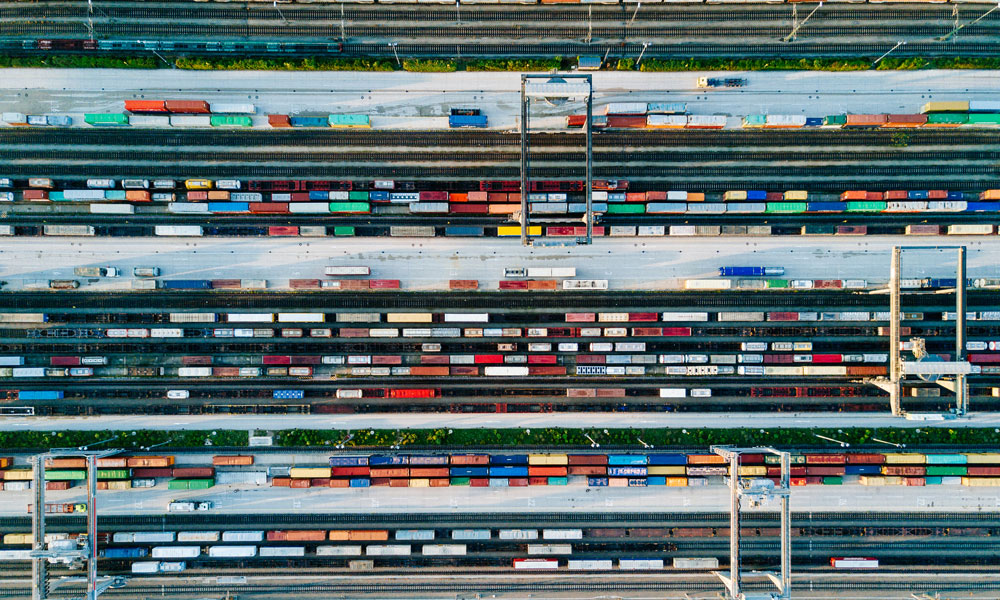Blockchain, ICTs, big data… “Logistics and Transport 4.0” is here
María Cózar (senior associate of the Litigation and Arbitration department and Transport & Shipping industry).


Logistics and transport is the latest sector to adapt to the changing economic circumstances, developing pioneering technological innovations in the search for solutions. The use of ICTs, the Internet of Things (IoT), big data, analytics, artificial intelligence, algorithms, cryptography and Blockchain, coupled with the advent of autonomous vehicles (cars, trucks, shipping vessels, airplanes) and drones, are contributing to changes in global production models and supply chain management. The process of digitalizing almost everything physical seems unstoppable, and the IoT represents an important aspect of Industry 4.0, in which goods, machinery, factories, warehouses, vehicles and more will all be interconnected.
The legal sector and its lawyers are rethinking how to adapt to a changing world, in which legal services need to align with the needs of clients facing new and diverse challenges. Some firms, including Garrigues, have been investing efforts and talent in this endeavor for many years now. The firm has continued to innovate, including in technological matters, and has carried out its own product testing, using the very latest technology applied to legal services. Now, the firm takes another decisive step forward in assisting its clients in addressing the challenges of Industry 4.0.
It seems that never before has technological innovation and consumer demand led to so many new challenges, changing the face of industry and manufacturing systems at unrelenting speed. With Industry 4.0, we are witnessing a true industrial revolution, in which businesses must adapt to an interconnected ecosystem, investing in technology and making major organizational changes in order to keep up with new developments.
Supply chains have had to respond to these challenges, investing considerable talents and efforts, and focusing on the key aspects of trust, traceability, reliability, efficiency and transparency. Logistics has at times been hailed as the soul of the modern world: 90% of world trade is transported by sea. The logistics behind international trade is extremely complicated, involving numerous different agents and processes.
Leading Spanish companies in this area, such as Inditex and Mercadona, are pioneers in the field. Applying successful logistics management models, they have adapted to changing technologies, using big data to align decision-making with customer experience in order to anticipate and react to changes in consumer patterns. E-commerce has altered the consumer habits of millions of people, which in turn means that the businesses involved in the value chain must stay on the cutting edge in order to meet their customers’ demands.
Other large transport and logistics companies are also actively adapting to these changes. In the past year, these innovative businesses have been working on developing technological applications and testing products applying Blockchain technology to logistics and transport.
The Maersk shipping company, for example, understands that in the interconnected world we live in, where the physical and digital worlds must meet and adapt to one another, logistics operators, which are responsible for delivering goods to their final destinations, must provide the impetus to the economy, producing innovative solutions to help ensure that this changing paradigm will bring not only profits but also social benefits. A technological solution for digitalizing trade flows has been proposed, in which all players will be able to track the progress of goods in the supply chain throughout the entire journey, from container of origin to the final destination. The technology also allows for viewing the status of customs documentation, bills of lading and other relevant information. Maersk may well be transporting millions of containers this year. This is clearly an exercise in transparency, made possible only through technological innovations.
In the company’s own words: "they have reached an agreement for developing a solution using Blockchain technology in Hyperledger Fabric, providing end-to-end supply chain visibility and security, obtaining advantages for all stakeholders with cost savings by reducing the paper trail, thereby ensuring less possibility of fraud and errors, facilitating transactions and opening up opportunities for more players in the global and cross border chain. In order to demonstrate the potential value of a commercial digitalization solution, IBM and Maersk have worked with several commercial partners, government authorities and logistics companies within the framework of EUFP7CORE."
The Israeli shipping company ZIM has also tested a project based on Blockchain technology for digitalizing bills of lading, which are the most important document in the transport of goods by sea, with the threefold advantage of serving as a security document, transport certificate and document representing the goods. The company has reported successful test results to the market and is proposing implementation of the system.
Another major logistics company, DHL, has created its own supply chain prototype based on a permissioned Blockchain. This prototype has been tested for monitoring throughout the entire global pharmaceutical supply chain.